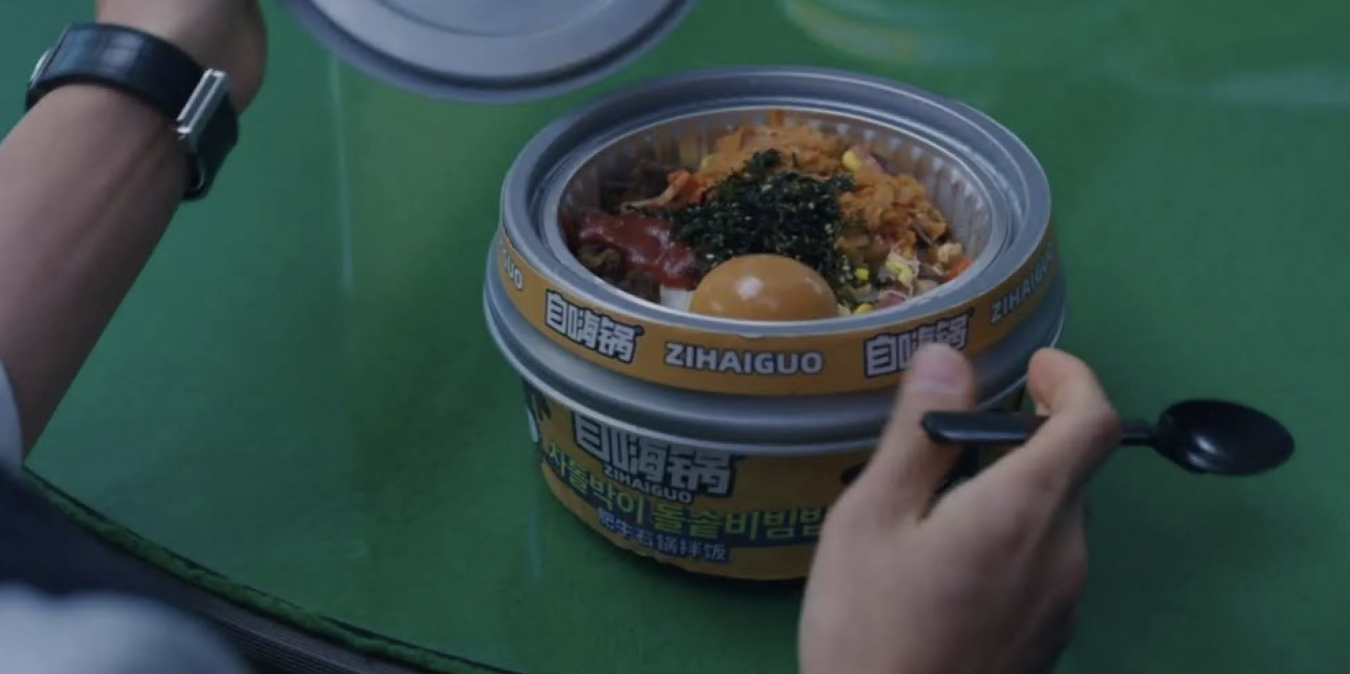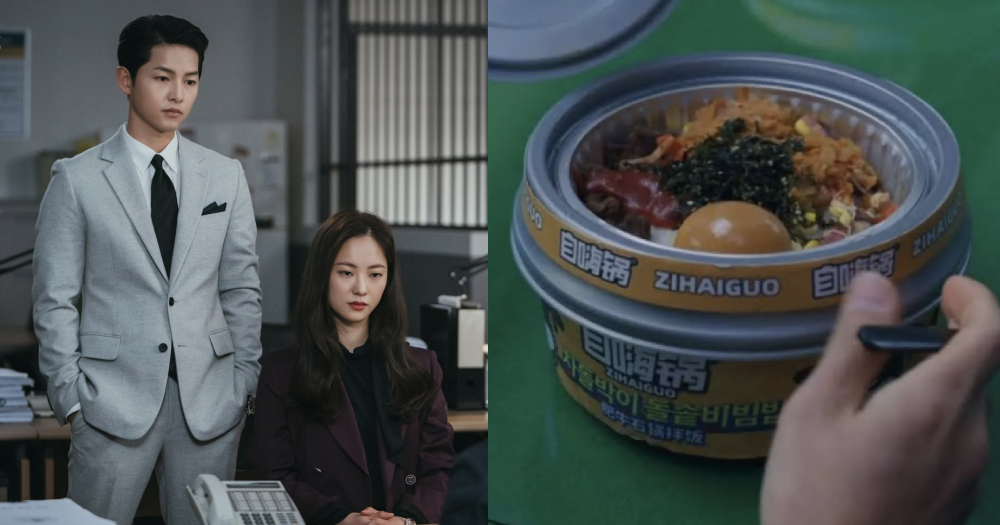Weeks after a scene in drama series "Vincenzo" sparked ire among some South Korean viewers, actor Song Joong Ki has broken his silence on the controversy.
In an interview with Yonhap, Song, who plays the lead role in the show that was trending on Netflix, apologised for the scene, and said as the actor in a title role, it is "right to apologise to those who are disappointed with our programme".
Cultural feud
In the eighth instalment of the 20-episode drama that just finished airing on Sunday, May 2, the two lead characters played by Song and Jeon Yeo Bin were filmed having an instant bibimbap meal.
 Screenshot via tvN
Screenshot via tvN
 Screenshot via tvN
Screenshot via tvN
The bibimbap -- a popular Korean dish made of rice topped with seasoned vegetables and red chilli paste -- was from a Chinese brand called "Zihaiguo", which is one of the show's sponsors.
Some South Korean viewers had taken offence at the product placement (indirect advertising) that featured a Chinese version of a Korean dish in a Korean drama. The controversy had also come on the heels of a heated exchange between Chinese and South Korean netizens recently over which country kimchi and hanbok belong to.
Product placements
According to The Korea Times, a netizen wrote: "What is this Chinese bibimbap product placement? Now they (Chinese) are going to argue that bibimbap is a Chinese dish."
Another voiced concerns over foreign viewers mistakenly thinking that bibimbap is a Chinese food because of the product placement.
But not everyone is outraged at the scene. A netizen defended South Korean TV channel tvN by saying in order to cover its budget of 20 billion won (S$23.8 million), it probably had "no choice because Chinese companies were giving so much money to buy product placement".
The scene was reportedly removed from clips aired in South Korea and some streaming platforms overseas.
The drama "True Beauty" also came under fire from South Korean netizens, who took issue with the Chinese product placements featured prominently in the show.
South Korean viewers had also voiced their displeasure over Korean dramas that were renditions of popular Chinese novels, such as "The Golden Hairpin" and "Until the Morning Comes", according to The Korea Times.
This decision by Korean producers, however, were perhaps taken to ensure that the dramas would do well among fans of the novels, and guarantee a certain degree of success, Yun Suk Jin, a professor of Korean language and Literature at Chungnam National University opined.
Being the largest market in Asia, it is not surprising if Korean producers would like to cater to Chinese viewers as well, he added.
Top image adapted via tvN
If you like what you read, follow us on Facebook, Instagram, Twitter and Telegram to get the latest updates.
